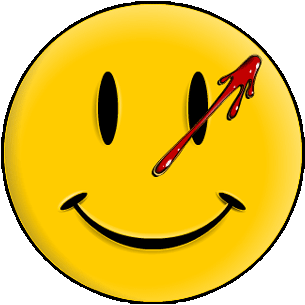
I haven't been to theatres in awhile, but I sort of figured that Watchmen wouldn't exactly be a laptop or DVD experience. I was right. I'm not sure how enveloped I would have been if I had been squinting at a tiny screen, but in theatres, I spent the entire experience with my mouth open.
I must admit this: I knew nothing about the backstory. Less than nothing. I didn't want to know, since the buzz was so insane that knowing anything pretty much implied being let down. And I really, really wasn't let down. I was engrossed every minute of its (almost three hour) timespan, completely invested in this story, these characters, that I'd previously known nothing about.
I'm generally biased against comic book movies. The Batman revamps I find extremely interesting, but most of those movies tend to be complete cheese (Spiderman series), or, if not, then simple action. There is the rare exception, but Watchmen is that exception. It's more a dystopian science-fiction film than a superhero film, and maybe that's why I loved it so much.
I do have a caveat. I have a strong stomach, and if I didn't, I probably wouldn't have been able to handle the graphic violence within, some of it more graphic due to the implications (strong violence against women). When I raved about it to my mother today, I told her in the same breath not to watch it. If you can't handle violence, or can't handle a superhero film where the good guys aren't actually
good, but human, then this is not the film for you. If you're looking for an intricate treatise on morality, or lack thereof, set in a compelling, horrifying world, well, then, go forth! Go forth at once!
4/5















.jpg)















